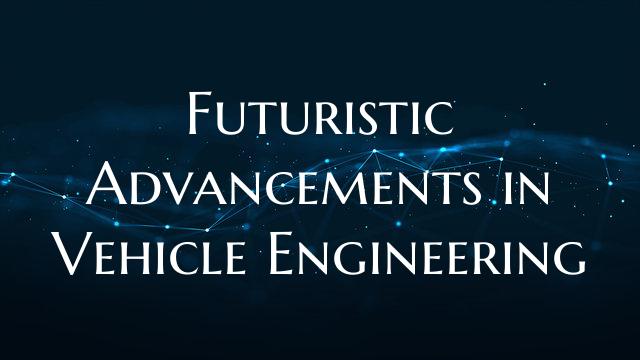Futuristic Advancements in Vehicle Engineering
In recent years, the field of vehicle engineering has seen significant advancements that could very well shape the future of transportation as we know it. With technology evolving at an unprecedented rate, engineers and designers are pushing the boundaries of innovation to create vehicles that are not only more efficient and environmentally friendly but also safer and more enjoyable to use.
One of the key areas where futuristic advancements are being made is in the development of autonomous vehicles. These self-driving cars are equipped with sophisticated sensors, artificial intelligence, and cutting-edge algorithms that enable them to navigate roads, detect obstacles, and make split-second decisions, all without human intervention. The promise of autonomous vehicles lies in their potential to revolutionize transportation by reducing accidents, alleviating traffic congestion, and increasing mobility for those who may be unable to drive themselves.
Another exciting development in vehicle engineering is the integration of electric propulsion systems. Electric vehicles (EVs) are becoming increasingly popular as more automakers invest in sustainable transportation solutions. By utilizing advanced battery technology and sophisticated power management systems, EVs are able to offer impressive performance, long driving ranges, and zero tailpipe emissions. As the global push towards reducing carbon emissions gains momentum, electric vehicles are poised to play a crucial role in the transition to a cleaner and greener transportation sector.
Furthermore, the use of advanced materials and lightweight construction techniques is revolutionizing the design of vehicles, making them more fuel-efficient and environmentally friendly. Carbon fiber composites, aluminum alloys, and other high-strength materials are being used to reduce the weight of vehicles without compromising on safety or structural integrity. By adopting these materials, manufacturers can improve performance, increase energy efficiency, and decrease the overall environmental impact of their products.
In addition to these advancements, vehicle engineering is also witnessing progress in the integration of connectivity and smart technologies. The rise of the Internet of Things (IoT) has enabled vehicles to communicate with each other, with infrastructure, and with other devices in the environment. This connectivity opens up a world of possibilities, from real-time traffic updates and predictive maintenance alerts to personalized entertainment options and remote vehicle control.
In conclusion, the future of vehicle engineering is looking incredibly promising, thanks to these futuristic advancements that are pushing the boundaries of innovation. From autonomous vehicles and electric propulsion systems to advanced materials and connectivity, the automotive industry is on the brink of a new era of transportation that is safer, more sustainable, and more technologically advanced than ever before. By embracing these advancements and continuing to push the limits of what is possible, engineers and designers are paving the way for a future where vehicles are not just modes of transportation but also symbols of progress and ingenuity.

